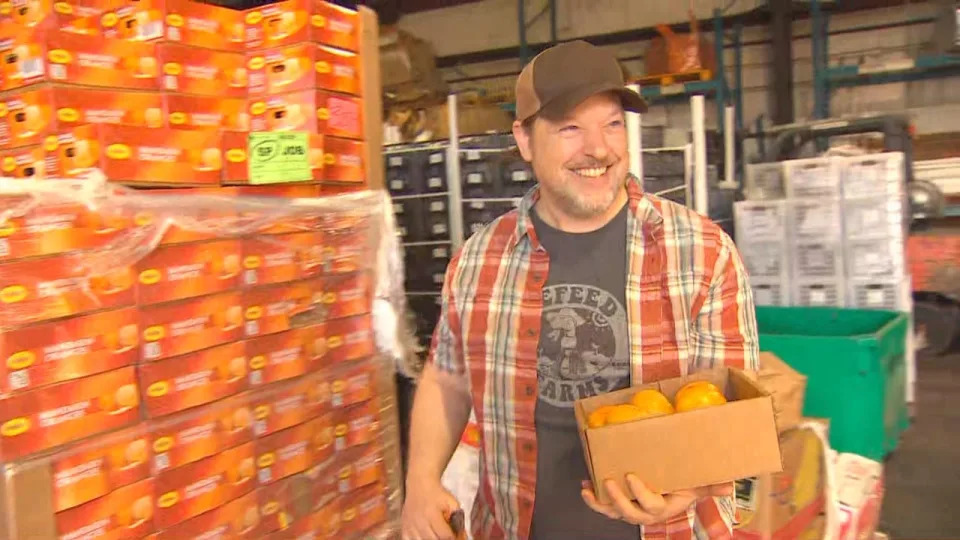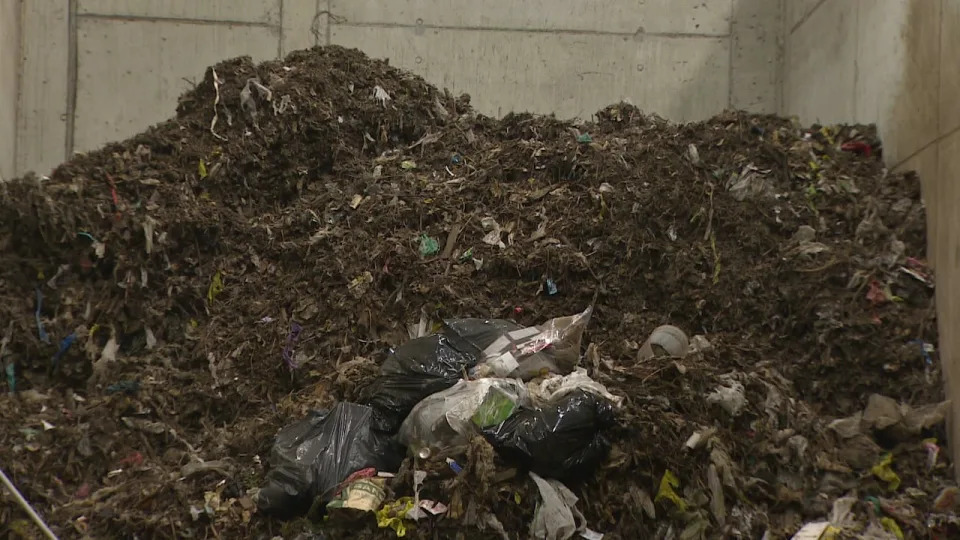CBC
Sat, December 30, 2023

Stuart Lilley, owner of ReFeed Farm in Langley, B.C., says there are solutions to reduce and repurpose food waste but they take time, effort and resources — which some retailers and manufacturers say they can't afford. (CBC News - image credit)
As huge amounts of food are thrown out every day, some Metro Vancouver organizations are helping recover that food and preventing it from going to waste.
"Throwing food in landfills is really the worst outcome for everybody, the people and the environment," Jessica Regan, CEO and co-founder of FoodMesh, said during an interview with CBC's BC Today.
The food rescue service in Vancouver helps farmers, manufacturers and retailers sell that food at a reduced price or donate it to food banks.
Regan says organic waste in landfills rots and produces methane — a greenhouse gas — that's more potent than carbon dioxide.
According to the province, organic waste makes up 40 per cent of materials in B.C. landfills.
FoodMesh says they want to bring that number down as much as possible.

FoodMesh co-founder Jessica Regan, pictured during an interview over Zoom, says her social enterprise connects businesses who grow surplus food with charities and organizations that can use them. (Zoom Screen Grab)
To do that, Regan says, it's important to address a flaw in the supply chain.
"It is really the industrial, commercial and institutional businesses where the large volume of waste generates," she said.
A 2019 study by Seconda Harvest, a Canadian food rescue organization, found that around 58 per cent of all food produced in Canada — about 35.5 million tonnes — is wasted before they even hit grocery store shelves.
'A broken food system that needs to be fixed'
Some of the main problems, Regan says, is the lack of appetite for "ugly" fruit and vegetables.
"If something is too ripe for retail, oftentimes it gets discarded," she said.
"We built this B2B marketplace that allows manufacturers to connect and donate unpredictable ad hoc surplus food to other organizations."
Donating to food-relief organizations is a priority, while food that is no longer suitable for human consumption is used for compost or shared with farmers as farm feed for animals.

Waste containing contaminants such as glass and plastics are is eventually moved into a landfill. According to the province, 40 per cent of materials in B.C. landfills are organic. (Jon Hernandez/CBC)
A similar initiative is ReFeed Farms, which partners with grocery stores, food retailers, manufacturers and restaurants to rescue food headed for the landfill.
Last year, owner Stuart Lilley says, the Langley, B.C.-based company sorted 11 million pounds of discarded food to give to food banks and local farmers.
"We have a broken food system that needs to be fixed," Lilley said during a phone interview with CBC, adding that the linear, take-make-dispose food system is unsustainable and results in a high volume of waste.
"Food manufacturers are having to do everything. They are doing all the collecting, processing, grading at their facilities, which is very costly for them and thus it's cheaper for them to simply throw waste away," he said.
"We make things easier to recover those waste and build a supply chain to connect them with charities and other organizations."
The provincial government has also committed to diverting organic waste from landfills, launching the Organics Infrastructure and Collection Program in 2020, which supports projects that convert organic waste into energy.
While Lilley and Regan acknowledge the province's commitment to food waste diversion, they both say more needs to be done.
"Governments in other countries are forbidding the destruction of unsold food products," said Regan, "and we frankly need to step up a little bit."
No comments:
Post a Comment